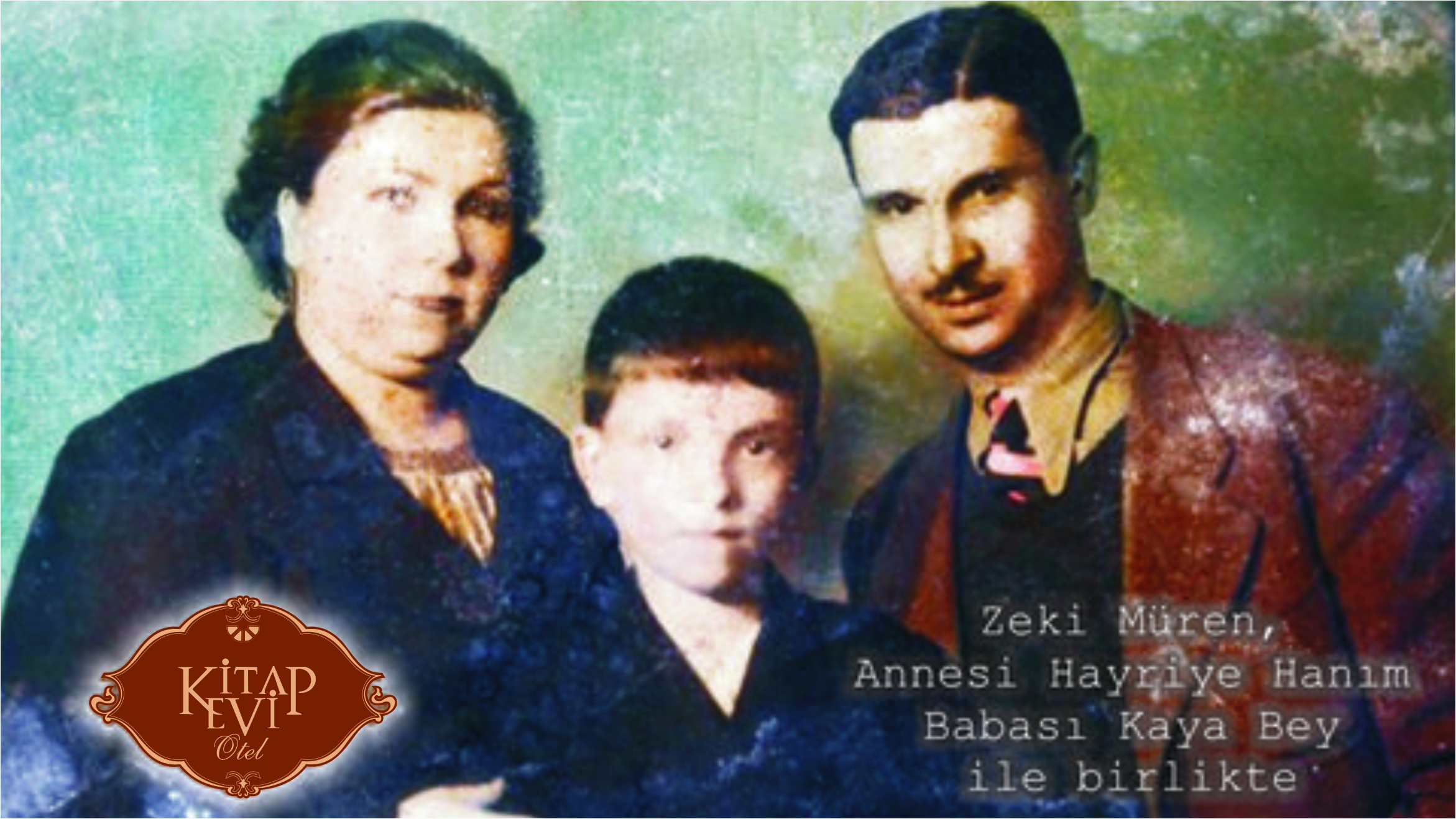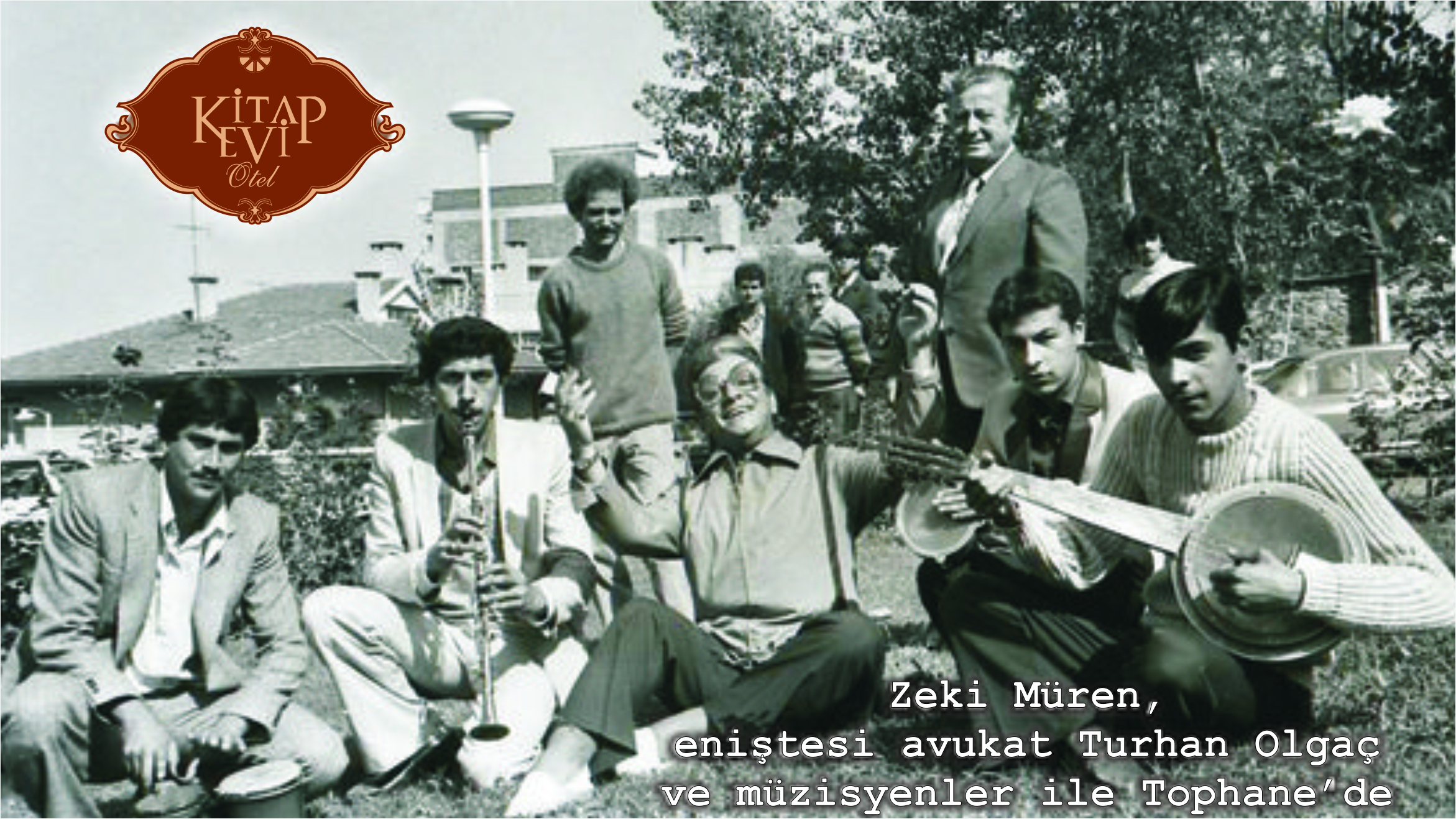"I was born on December 6, 1933… What a great decision I made."
"Let’s go to our home at No. 30, Ortapazar Street in Tophane Neighborhood, where houses cling to each other…"
December 6, 1933. The second snowfall had already blanketed the foothills of Uludağ, and Bursa was enduring one of its freezing nights. My grandfather, Hacı Mehmet Efendi, sang me my first lullaby with his beautiful voice after my umbilical cord was cut:
"Boy, boy, wrap around my neck
My arm is your pillow, my hair your quilt…"
"I was born at five in the morning, at the time of the dawn prayer. My late grandmother wished for me to be a smart and successful child, so she named me Zeki. The residents of Ortapazar Street rushed to my midwife’s joyous cries that morning. My grandfather, Mehmet Efendi, who had a beautiful voice, was a well-known hafiz. Every day he would go to Shahadet Mosque to recite the call to prayer. When he did, everyone would pour into the streets, listening in awe, their hairs standing on end.
My father, Kaya Müren, was the best-dressed man in Bursa. Until the day he died, he never once took off his suit and tie, regardless of the season. My grandmother, on the other hand, never removed her long white robe, and her hair was always tied up in a bun. That’s why she became known as `Clean Hayriye.`"
Zeki Müren had such a poetic way of describing his childhood and Bursa’s past. It’s almost like stepping into his memories! What do you think?
Zeki Müren’s Memories of Bursa
"I couldn’t play rough, destructive games for fear of breaking my glasses. My dear mother used to warn me, `Your glasses might break, don’t go near your friends playing on the rocky streets.` So, I watched them play çelik-çomak from the doorstep with longing. I had a cloth doll—her name was Tomris."
"Primary school at 39: Black uniform, white collar. The first display of pride to society."
My mother entrusted me to my teacher, Nazire, at Orhangazi Primary School, the only primary school in Tophane Neighborhood.
"Middle school at 44: Pale complexion, short hair. Dreams squeezed tight."
At 11, I enrolled in Tahtakale Middle School. When my name was written in the honor book in the first grade, I felt like I owned the world.
While playing house in the neighborhood, Ayten was always my "wife." People said we made a great pair and teased our parents: "Why didn’t you arrange their engagement as children?" I believed in those sweet words and insisted that I would marry green-eyed Ayten when I grew up.
My father had two horses—one white, the other chestnut-colored. Every Sunday, he took them out for a ride. We also had a two-wheeled carriage named Bubik. On Sundays, we went for picnics at the head of the Geçit stream. My father drank two glasses of rakı every night.
"The neighborhood bonds back then were far stronger than today`s family ties. Houses had connecting doors leading from one garden to another. Our garden had two beautiful pools, and my grandmother surrounded them with geraniums. My first stage was on those geranium-lined pools—I would drag a chair with my tiny hands, climb on top of it, and gather the neighborhood around me."
"We used to go to the Tuzla mineral baths. Back then, three old steamships—Marakaş, Sus, and Trak—sailed to Istanbul, taking three and a half hours from Mudanya. My grandmother and I stayed at the Vienna Hotel in Sirkeci, where all the people from Bursa would stay. Whether by chance or habit, we always stayed on the third floor of that hotel."
"Every summer, tent theaters arrived on Ortapazar Street, setting up on empty plots. I adored them and pleaded with my father to buy front-row tickets. For my sake, my family moved to the tent theater every other night. I first smelled the scent of the stage while watching singers perform there—it was such a peculiar scent. At that time, I was a devoted fan of Müzeyyen Senar. Our home had every record of hers. After school, I listened to her records, and when I began my first music lessons with Bursa`s tambur master Izzet Gerçeker, we would play Müzeyyen Hanım’s songs together."
Ortapazar Street, where Zeki Müren spent his childhood, is only a two or three-minute walk from Kitap Evi Hotel. The Shahadet Mosque, where his grandfather called the morning prayer, still stands and remains open for worship. Although most of the houses with interconnected gardens and geranium-adorned pools have not survived, a few still remain. Who knows which one was the house where Zeki Müren was born?
If you ever visit Bursa, you can walk the same streets he once did and imagine the old city for a moment.
Source: Osmangazi Neighborhood – Osmangazi Municipality Publications

